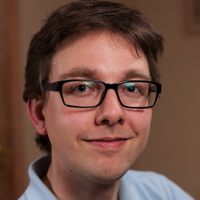In my previous post from Quantz “On playing the Flute†I quoted:
“Whoever is aware of how much influence mathematics and other related sciences, such as philosophy, poetry, and oratory, have upon music, will have to own not only that music has a greater compass than many imagine, but also that the evident lack of knowledge about the above-mentioned sciences among the majority of professional musicians is a great obstacle to their further advancement, and the reason why music has not yet been brought to a more perfect state.â€
What I find very interesting is that Quantz criticizes the contemporary music of having many flaws and would like music students to be more educated. I wonder what his take on the conservatory studies today would be as they in my ...
2005 has been quite a good year for blogging. This blog has been its regular mess of different stuff that intrests me, but it has spawned some interesting projects. My photoblog, for instance, got a kick start with my photoblog entries that I used to have in this blog. Also, as I started teaching, my work related posts turned into a blog with lecture notes that my students could visit to get all the material I had to offer them. And quite recently the early music section, with quite a bit of help from some friends, is made into the early music blog. The server and familly blog that I set up for my father has been mostly left untouched, but all in all I'm quite content with ...
I’ve studied computer science and then gone on to study the recorder and I’m currently busying myself with making the recorder able to control the computer. I love the combination, but wondered a bit about if I’ve chosen a favourable tradeoff. I’m happy so I guess I’m not doing to bad. But, when I started reading “On playing the Flute†by Johann Joachim Quantz (the book I’m referring to is the 2nd edition of the English translation by Edward R. Reilly published through Faber & Faber) I found that he had something to say on the issue. In chapter 1 (page 24) he writes:
“Furthermore, a musician must not occupy himself with too many other things. Almost every science requires the whole man. My meaning here, however, is by no means that it is impossible to excel in more than one science at the same time, but that ...








